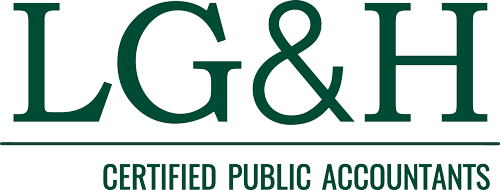Building Online Marketing Strategies for Small Businesses

Small businesses can have huge potential. Unfortunately, far too many of them don’t know how to handle marketing. They neglect to use the Internet to their advantage. This can have a huge impact on their business.
While some small businesses may not have the time or money to devote to marketing, many others simply don’t know where to begin or what to do. Aside from building a website, they’re at a loss for how to market their business online. Luckily, it doesn’t have to remain a mystery.
Here’s what every small business should do to market its products or services:
1. Create a brand.
Just because a business has products or services to offer, that doesn’t necessarily mean that they have a brand. Defining a brand is an integral part of marketing your business. You can have a business name, a website, and even a logo without having an actual brand. Your brand is what you stand for. It goes above and beyond the business name and website design.
Think of a huge brand like Disney. What do you think of? Happiness and family, right? That’s their brand. You don’t immediately think of Mickey Mouse or hotels or rollercoasters, even though those are the specific things that goes into the world of Disney. You think about how Disney makes you feel because that’s how they’ve branded themselves.
Often, small businesses are created by individuals who want to be their own boss. Or, they’re launched because someone sees that there’s an opportunity to make a better product or service than competitors. They assume that as long as they have a business name and a website, people will flock to them. This isn’t true though.
Every business needs a brand. The biggest companies and the ones that have been around the longest all have the same thing in common: a brand. This is often what helps them stand out from the crowd, too. Your brand can connect with your audience. When a great brand is combined with stellar products or services, it’ll keep your customers coming back over and over.
Now that you know you need a brand, you’re probably wondering how to create your brand. While there are companies out there that will help you build a brand, you can actually do it on your own. This is good news for small business owners who may not have extra room in their budget to hire a branding expert.
Here’s how to define your brand:
What is your origin story?
How did you start your company? What are you most proud of? Write your origin story, highlighting the aspects of your company that make it unique.
Also, make sure to mention how your origin story helped you create distinct business practices. For example, maybe several bad customer service experiences helped you create a unique, attentive way to serve your own customers.
Communicate with your customers.
Ask them what they like most about your company. Also, don’t be afraid to ask them what they don’t like. Find out why they chose your company over the competition. This helps you figure out how you most resonate with your audience. Then, use this information when writing your brand messaging.
Check out the competition.
Look at their websites and social media profiles. Figure out what they’re doing well and what they’re not. Find out how they talk about their own brand.
Jot down notes about the holes in your industry. What do customers want that they’re not getting? This is how you can further define your unique selling points.
Combine this research & information to create your brand.
Now that you put in the work to gather the necessary information, it’s time to finally define your brand. What information jumped out at you and made you excited? How can you discuss these aspects in ways that your competitors haven’t? Once you can answer these questions, you developed a brand position.
2. Go over your website.
Go through your website, paying attention to content and language. While you probably already have a website that’s up-and-running, you may need to tweak it in order to now fit your brand and to better suit your customers. Review the website as a consumer would. Make sure that you’re not using corporate speak.
Your customers won’t have the same level of knowledge that you and your employees do. You have to speak to them, not to other experts. On the other hand, if your target audience has a high level of knowledge, make sure that the content on your website isn’t general and basic. Overall, you want to make sure you always speak directly to your target audience.
Here’s how to update your website to better serve your company:
Make sure the website has the information your audience wants & needs.
Your website will be completely useless if it doesn’t provide the information people want. Every website should clarify what the company does. You should also include in-depth information about your products or services. Also, don’t forget to include contact information.
You may think that these are all-too-obvious suggestions, but you’d be surprised at how many companies leave out something as basic as their phone number! You can only convert visitors if they understand your company. Otherwise, you’ll lose them. Maybe to the competition!
Only use language your audience would use.
Don’t get so wrapped up in industry terms that you start using terms that only insiders will understand. Using the wrong wording can affect how high you rank in search results. If your target audience is searching for information that’s worded one way, but your website has a different style of wording, you’re not going to show up in those search results. Plus, even if people find your website, it won’t be effective.
Always keep your content on-brand.
Your branding should be at the center of your content. While you draft content that relates to the customer. Also, make sure that you stick with your own branding. You may want to keep a running list of brand words that you use often throughout your content. Additionally, all of your content should reinforce your brand’s most important aspects.
3. Create a marketing strategy.
Now that you have a brand and a website that accurately reflects that brand, it’s time to create a marketing strategy. Your website should already be SEO optimized and provide a positive user experience. However, if you hope that online traffic brings you a high percentage of business, you’re not finished tweaking the online world to serve you. Now, it’s time to create your marketing strategy.
This can feel super overwhelming for a lot of small business owners. There are so many options out there when it comes to online marketing that it can feel impossible to know which ones to choose. When you do finally narrow down your options, you may be faced with a learning curve just to figure out how to use the platform you chose.
The best advice you can get is to not pursue each and every platform available. Start with one, figure out how to use it, get yourself on a routine, then consider adding another one. Becoming a master of one marketing platform serves you better than trying to juggle several without really knowing how to handle any of them. Pick the marketing strategy that’s going to give you the biggest return on investment.
Here are your options:
Content Marketing
Content is king when it comes to online marketing. Google, which is the most important search engine out there, wants brands to regularly deliver high-quality content to website visitors. Creating a content strategy isn’t as simple as it may sound.
You want to make sure that you offer unique content to your audience instead of just spinning what your competitors are writing. Your content needs to offer unique value. Take a personal stance on a topic.
Solve a problem that your customers have. Give them a reason to regularly return to your website or blog. If you have a brand that can benefit from regular content, go for it. If you struggle when it comes to coming up with topics, though, another marketing avenue may be a better fit.
Paid Advertising
There are a few options for paid advertising, including search, display, and social. Done well, paid advertising can have really great outcomes. However, it can take quite a bit of time and money to figure out how to do paid advertising right.
When you pay to rank for competitive terms, you could end up spending a lot of money to get traffic to your website. If you have the time and money to dedicate to paid advertising, it’s one of the best ways to increase traffic to your website. If you don’t have the time, but you have the marketing budget, look for an expert!
There are online marketing agencies that are Google Certified Partners, like Links Web Design, the only agency with this status north of Portland, Maine. Being a Google Certified Partner shows that they passed Google AdWords product certification exams. They are up to date with the latest product knowledge. In other words, they earned it and know what they are doing and doing it to Google’s standards.
Social Media
Social media can be a fanatic way to increase word-of-mouth marketing, engage customers, and build brand loyalty. However, you want to make sure that your brand is fleshed out and your website is completely developed before you start using social media.
You also need plenty of content, images, and unique selling points to use social. You need to give people a reason to pay attention to your profiles. Don’t launch a social media strategy until you have the resources and content gathered.
Where are your customers spending their time?
Once you do have enough content to share with your audience, figure out which social media platform is best for you. Twitter and LinkedIn are great for B2B companies. However, they’re not ideal for B2C companies.
Instagram is fantastic for visual brands. Facebook is great for retail companies. You don’t need to create profiles for every single platform out there. Start with the one or two that are most relevant to your company, master them, then consider adding another one.
Email Marketing
Email marketing campaigns are highly effective when you’re trying to increase customer retention or maintain brand loyalty. Every email you send should have value. Offer self-service options or coupons to get people to open your emails. You want to make their lives easier; whether that’s by offering interesting content they can’t get anywhere else or special deals.
Local Marketing
If you’re a brick-and-mortar business or a locally based business, local marketing can be a huge help. From local paid advertising and geographic hashtags to connect with other area businesses, there are several ways to tap into your local market.
Promotions
Small businesses benefit from being featured on blogs and in publications. This helps increase brand awareness as well as improve your SEO. The more places that link back to your website, the better. It can take time and effort to get a media outlet to pick up your story, but it’s worth it.
Start small and look for niche blogs and publications that cater to your audience. Builds relationships with publications, other businesses, and online communities. Set yourself up as a thought leader so that people will trust what you have to say. Spend a lot of your time networking online.
There’s so much that goes into marketing, whether you’re a small business or a huge business. The smaller the business, the more overwhelming marketing can be. While there’s a lot of work to be done, knowing what you need to manage is a good start. Even if you have a one-person team handling everything, there are ways to fit marketing into your plan.
The most important aspect of marketing is figuring out what makes your company unique. Then, find a way to talk about that. This helps you to stand out from other small businesses that don’t understand the importance of their unique selling point. Next, think about what your customers need and how you can meet those needs.
Producing content that they want to read and will solve their problems is a huge help. Once you know what type of content you want to produce, you can figure out the marketing strategies that will best get your content out there to your audience. Don’t overextend your resources. Only use the marketing strategies that will best help you.
Links Web Design is a Website Design Company in Bangor, Maine.
Category
- All
- Brand Recognition
- Customer Service
- General
- Google Plus
- Online Marketing
- Search Engine Optimization
- Social Networking
- Web Design
- Web Security
- Website Launch Announcements
- Whiteboard Wednesday









